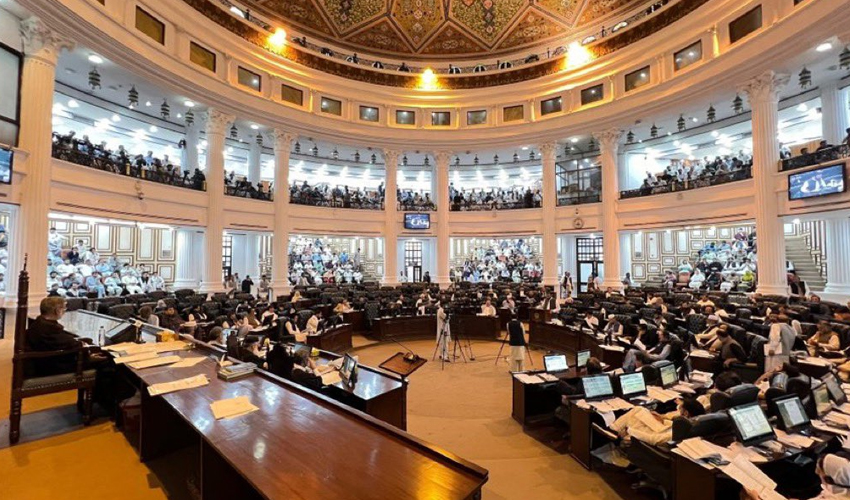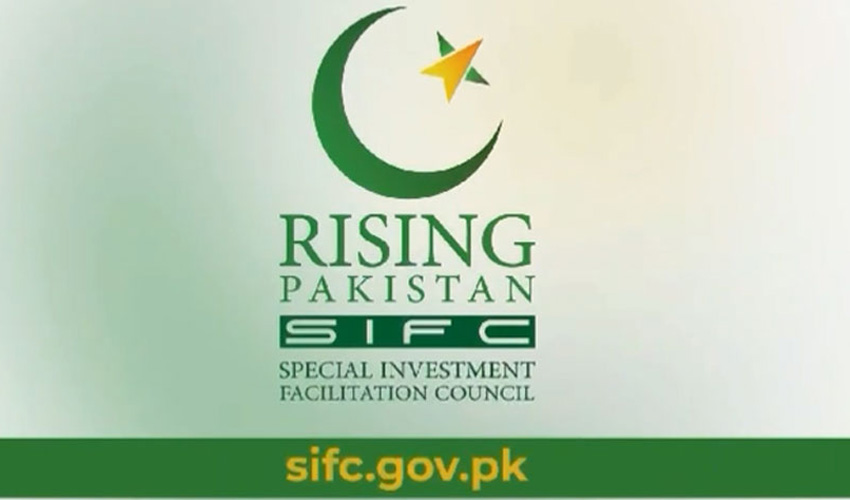In a significant development, the Khyber Pakhtunkhwa Assembly presented its budget for the fiscal year 2024-25, with a surplus of Rs 100 billion. The budget meeting, which started 2 hours and 15 minutes late, was presided over by Speaker Babar Saleem Swati.
Finance Minister Aftab Alam presented the budget, with Chief Minister KP Ali Amin Gandapur in attendance. The total revenue for the province is estimated at Rs 1754 billion, while the total expenditure is Rs 1654 billion.
Salary and Pension Increases
Under the new budget, basic salaries for government employees will see a 10% increase, alongside a corresponding 10% rise in monthly pensions. Additionally, the minimum monthly wage is set to rise from Rs 32,000 to Rs 36,000, aimed at improving the livelihoods of workers across the province.
Investments in Education and Healthcare
Education remains a key priority, with Rs 362 billion 68 crore allocated for the sector, marking a 13% increase from the previous year. Higher education will receive Rs 35 billion 82 crore, while plans are underway to establish 30 degree colleges in rented buildings.
In a move to enhance healthcare accessibility, Rs 34 billion has been earmarked for the health card program, ensuring broader coverage for medical expenses.
Revenue Allocation and NFC Award
Finance Minister Aftab Alam highlighted the province's fiscal challenges, citing an annual deficit of Rs 139 billion due to discrepancies in the National Finance Commission (NFC) award distribution. Despite an allocated share of Rs 262 billion, KP has only received Rs 123 billion, exacerbating financial strains.
Hydropower Revenue and Taxation
Significant revenue from hydropower, totaling Rs 78 billion 21 crore, underscores the province's potential for energy generation. Meanwhile, efforts to bolster revenue streams include initiatives such as oil and gas royalties, windfall levies, and measures to address tax arrears.
The budget reflects KP's commitment to fostering economic growth, improving public services, and addressing fiscal challenges to ensure sustainable development across the province.
Tax Reductions for Hotels and Marriage Halls
Minister Alam announced a significant reduction in the sales tax rate for hotels, which has been lowered to 6%. Additionally, he mandated the use of a restaurant invoice management system for all hotels. Furthermore, a fixed sales tax rate is proposed for marriage halls to streamline taxation in the hospitality sector.
Property Tax Relief
In a move to alleviate the tax burden on property owners, the finance minister proposed a reduction in property tax rates. The current property tax on factories, set at Rs 2.5 per square foot or Rs 10,600 per kanal, is slated to be decreased to Rs 10,000 per kanal, providing relief to industrial enterprises.
Minister Alam outlined a revenue mobilization plan with a target of Rs 93.50 billion, emphasizing efforts to expand the tax net and boost revenue collection. The proposed reforms include reducing the tax rate on commercial property from 16% to 10% of the monthly rent and slashing the tax rate for health sector businesses from 16% to 5%.
Acknowledging the burden of federal taxes on property transactions, the finance minister proposed a reduction in provincial taxes on property transfers from 6.5% to 3.5%. This move aims to encourage property transactions and provide a 3% tax relief to individuals involved in property transfers.
Rs 232.80 billion allocated for health sector
Khyber Pakhtunkhwa Finance Minister Aftab Alam announced substantial allocations aimed at improving the health sector and other key areas. A total of Rs 232.80 billion has been designated for the health sector, marking a 13% increase in health expenditure compared to the previous year.
Key highlights of the health budget include the introduction of an air ambulance service and the establishment of a satellite center for the Peshawar Institute of Cardiology in the southern districts. Additionally, new medical and dental colleges will be developed with private sector participation. The development budget also encompasses various accommodation projects.
KP Budget (2024-25) sailent features----------------------------------------------------- |
|
|
The finance minister detailed that Rs 10.97 billion has been allocated for the purchase of medicines. The Health Card Plus initiative will receive a total budget of Rs 28 billion, with Rs 9 billion specifically earmarked for planned and merged districts.
Rs 140.62 billion allocated for law and order
For law and order improvements, Rs 140.62 billion has been allocated, which is a 12% increase from last year. This includes the launch of the PEHL 911 project under the Home Affairs department, aimed at enhancing emergency response and public safety.
Rs 8.11bn earmarked for social welfare sector
In the social welfare sector, Rs 8.11 billion has been allocated to support various programs designed to uplift underprivileged communities and improve social services across the province.
Agriculture and Energy Sector Investments
The agriculture sector will receive Rs 28.93 billion, reflecting the government's commitment to enhancing agricultural productivity and sustainability. Additionally, Rs 31.54 billion has been allocated for the energy sector.
Key initiatives include the establishment of the KP Distribution Company to increase electricity production and the launch of the Battakundi-Naran Hydropower Project in Mansehra, which will generate 235 MW of electricity.
The Green Khyber Pakhtunkhwa policy aims to shift mosques, tube wells, and street lights to solar energy, with plans to extend this to primary health centers, schools, universities, and colleges.
Social Welfare and Employment Programs
The finance minister highlighted that Rs 12 billion has been allocated for the Ehsaas employment, youth, and talent programs. These initiatives are expected to create employment opportunities for 100,000 youth. The Ehsaas Apna Ghar program has been allocated Rs 3 billion, with plans to construct 5,000 houses. The Chashma Right Bank Canal project, with a budget of Rs 3 billion, aims to irrigate 300,000 acres of land, addressing the province's food security concerns.
Infrastructure and Emergency Relief
Significant funds have been earmarked for infrastructure and emergency relief operations. Rs 10 billion is allocated for the CRBC lift canal project, Rs 26.90 billion for wheat procurement, and Rs 3 billion for the Bus Rapid Transit (BRT) project. Additionally, Rs 6.50 billion is reserved for the construction and repair of roads, and Rs 2.50 billion is set aside for emergency relief operations.



























